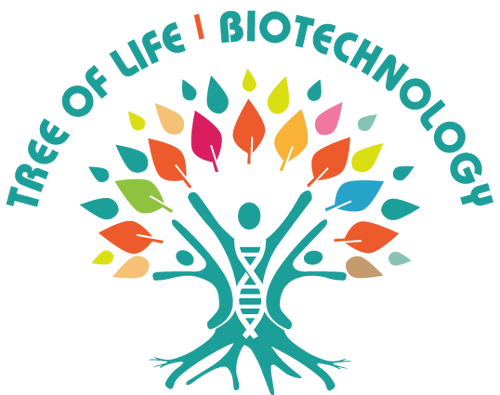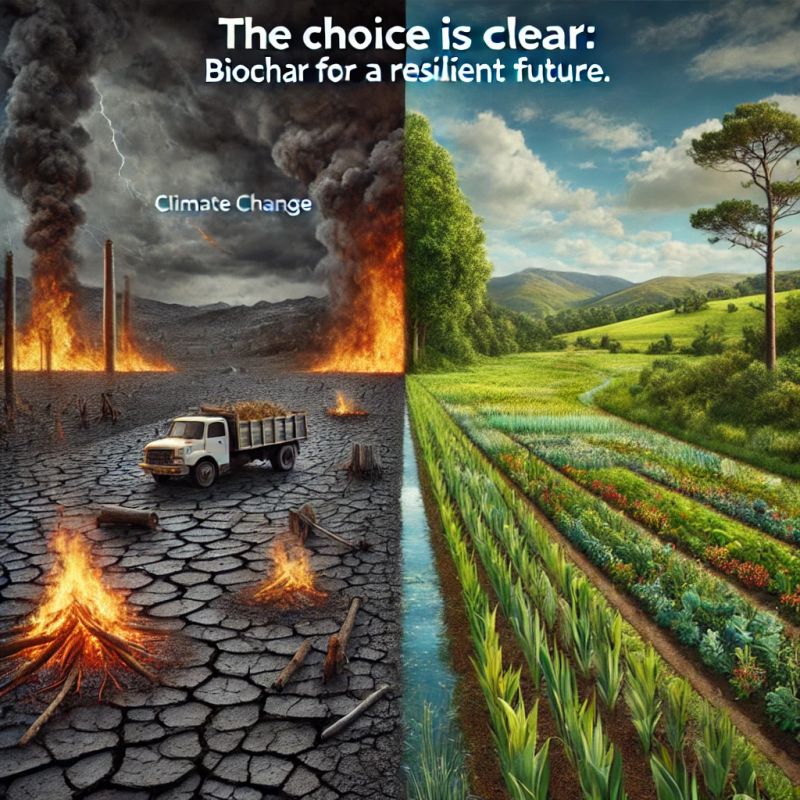Navigating the Future - Unraveling the Complexities of Renewable Energy & Sustainability

Introduction - As 2023 unfolds, humanity finds itself at a pivotal crossroads. The urgency to embrace renewable energy & sustainability is fueled not just by environmental considerations, but also by the socio-economic transformation that these changes promise. The global community is witnessing an unparalleled era of technological innovation, marked by complex challenges & profound opportunities. This comprehensive exploration delves deep into the multifaceted realm of renewable energy, highlighting the intricate interplay of factors that drive this global shift.
1. Energy Storage and Distribution - The renewable energy landscape is undergoing a revolution, with energy storage & distribution at its core. The advent of cutting-edge technologies like solid-state batteries and super-capacitors utilizing Premium Engineered Biochar as the main material for production, which offer enhanced safety & energy density, & gravity-based storage solutions, providing scalable & Eco-friendly options, signify major breakthroughs. The green hydrogen economy is no longer a concept but a burgeoning industry, with significant investments driving its integration into various sectors, from powering industries to heating homes. The challenge now lies in creating efficient distribution networks, innovative solutions for energy transfer, & regulatory frameworks that support the integration of these advanced storage forms into existing grids.
2. Grid Modernization - The essence of grid modernization lies in its adaptability to evolving energy demands. With renewable sources contributing a significant portion of global energy, grids must transition from traditional frameworks to more agile, AI-driven networks. This transformation is not just about integrating renewables; it's about ensuring energy equity, extending reliable & affordable energy services to underprivileged & remote communities. Innovations like micro-grids are empowering communities, while decentralized energy systems are promoting energy democracy, giving individuals control & autonomy over their energy sources.
3. Economic Viability and Market Structures - The economic contours of renewable energy are being reshaped by factors extending beyond cost-competitiveness. New job creation, particularly in rural & underdeveloped regions, is a critical metric of success. The transition is fostering new enterprises, from local manufacturing of solar panels to community-owned wind farms, driving economic growth from the ground up. However, this transformation also necessitates robust financial support structures, including micro-financing for small-scale solar systems & international funding for large-scale renewable projects in developing countries.
4. Technological Innovation for Clean Energy - The frontier of clean energy is a testament to human ingenuity. Research in bio-energy is turning waste into wealth, using agricultural residues, municipal waste, city/farm sewage, or petrochemical liquid waste to generate energy. One such prominent and commercially ready liquid-waste-to-energy technology is the MagneGas Project which converts city/farm sewage, or petrochemical liquid waste streams into MagneGas (COH2), a green hydrogen which is 150 octane and when combusted, produces up to 20% Oxygen in the exhaust. It is the only made made fuel which is actually life sustaining (see presentation). Another technology for producing clean abundant almost free electricity, is our new HyperFusion Reactor Technology which is a LENR (Low Energy Nuclear Reaction) Technology which produces NO harmful radiation. To view a video of our 3rd working prototype which was certified by independent 3rd party labs, click HERE To learn more about the science behind these very advance technologies, please download the free e-book "New Sciences for a New Era" by Sir Prof. Ruggero Santilli. Another advancement in wind technology is our WIndCube & WindWall. Marine energy technologies are also harnessing the power of our oceans safely & efficiently. In solar technology, transparent solar panels that can be integrated into building windows are becoming a reality, revolutionizing urban energy landscapes. These technological leaps are not just enhancing efficiency but are also pivotal in addressing the nuanced challenges of various localities, from dense urban cities to remote island communities.
5. Sustainable Transportation - Electrification of transport systems is accelerating, with countries like Norway leading the way & others following suit. Innovations are not limited to land vehicles, with electric ferries, yachts, & prototype airplanes entering the fray. The development of hyper-loop technology & maglev trains signifies a future where high-speed travel does not come at an environmental cost. However, the transition also requires a holistic approach, considering the environmental footprint of EV batteries, promoting shared mobility to reduce traffic congestion, & integrating public transport systems with renewable energy sources.
6. Energy Consumption and Efficiency - Efficiency in energy use is paramount in combating climate change. Beyond appliances & machinery, urban planning & building design principles play a crucial role. The concept of '15-minute cities' promotes accessibility to services & amenities, reducing the need for long commutes & consequently, energy use. In industries, the adoption of circular economy principles is minimizing waste, while the upsurge of net-zero communities is setting new standards in sustainable living. Personal lifestyle changes, driven by increasing consumer awareness & green marketing, also contribute significantly to reducing energy footprints.
7. Environmental and Health Impact Assessments - The shift to renewables also mandates rigorous environmental & health impact assessments. It's essential to consider the entire lifecycle of renewable technologies, from mining for materials to disposal or recycling. For instance, addressing the scarcity of rare earth elements used in wind turbines & EV batteries is crucial, driving research into synthetic alternatives or efficient recycling methods. Health assessments, particularly in mining communities & manufacturing hubs, ensure that the transition to green energy does not compromise human well-being.
8. Policy and Regulatory Challenges - The global energy transition is a mosaic of regional & national initiatives, shaped by diverse geopolitical, cultural, & economic factors. Policy & regulatory challenges include aligning national energy policies with global climate commitments, balancing energy exports with domestic energy security, & managing the socio-economic impacts of transitioning from fossil-based industries. Energy diplomacy emerges as a crucial tool, facilitating cross-border energy trade, shared renewable projects, & regional grid connections, fostering cooperation, & regional stability.
9. Public Perception & Community Participation - Public engagement in renewable energy initiatives has never been more critical. It's not just about acceptance but active participation. Communities are not mere spectators but key players in shaping their energy futures. This shift is evident in the rise of co-operative energy models, where consumers become prosumers, producing their energy through community solar gardens or wind cooperatives. Educational initiatives are demystifying renewable energy technologies, while participatory decision-making is becoming a norm, seen in public forums & community referendums on energy projects. This inclusivity ensures that renewable energy transitions respect local values, biodiversity, & cultural heritage, making them more socially sustainable.
10. Climate Change Adaptation and Resilience - Building resilience in renewable energy structures is as crucial as developing new technologies. Climate change is not a distant threat but a present reality, evidenced by the increasing frequency of extreme weather events. Renewable energy infrastructures must be designed to withstand these challenges. This necessity drives innovations like floating solar panels that can adapt to rising sea levels, & wind turbines engineered to operate in extreme cold or heat. Beyond physical infrastructure, resilience also involves building adaptive capacity at community & institutional levels. This means investing in climate-smart agriculture, developing early warning systems for climate-related disasters, & designing insurance schemes for renewable energy installations.
Conclusion - As we navigate through 2023, the journey towards renewable energy & sustainability is clearly charted with both challenges & opportunities. It's a journey that transcends national borders, sectoral divisions, & social strata. It calls for an amalgamation of global solidarity, policy convergence, technological innovation, financial ingenuity, & cultural sensitivity.
The transformation towards a sustainable future is not just a scientific or economic discourse but a humanitarian one. It touches the very core of our existence — from the air we breathe, the food we consume, & the societal norms we uphold. As we unravel the complexities of this transition, it becomes evident that our collective future hinges on the choices we make today.
In this decisive decade, every action counts, every innovation matters, & every voice contributes to the chorus calling for sustainability. It's a mix of collective efforts, weaving together the aspirations of billions, for a world where development is not at odds with nature, but in harmony with it.
This comprehensive narrative is a call to everyone — policymakers, entrepreneurs, activists, & citizens — to partake in this monumental task actively. The path ahead is arduous, but the vision of a greener, cleaner, & sustainable world is a lighthouse guiding our steps.
Engage - This article extends an open invitation to thought leaders, innovators, community advocates, & individuals around the globe. Your insights, experiences, & initiatives are crucial in shaping this collective journey. Let's converge on this platform to share, learn, & collaborate. Use the following hashtags to contribute to this vital dialogue and to stay interconnected in our shared pursuit.
Hashtags:





